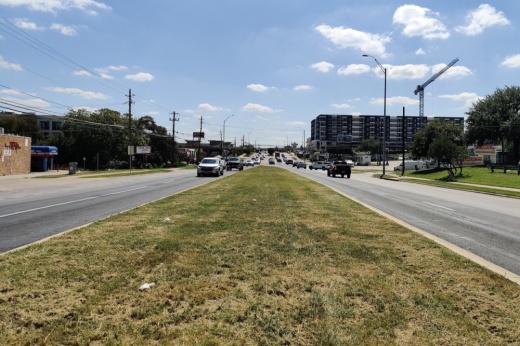City voters' approval of the multibillion-dollar transit plan in 2020 included a $300 million investment in antidisplacement strategies. That funding is set aside to ensure those living in areas vulnerable to displacement along new light rail and bus routes are not priced out as new infrastructure and related development arrives in their neighborhoods.
Austin has been working to spend $65 million of that overall allotment over the past two years, with the remainder to be used over the next decade. On Sept. 29, City Council approved a plan to distribute just under one-third of those initial funds to more than a dozen organizations to take on displacement in communities located within 1 mile of transit stations.
Council agreed to finalize agreements with the groups in an 8-0-3 vote, with District 6 Council Member Mackenzie Kelly abstaining and council members Natasha Harper-Madison and Vanessa Fuentes off the dais. In Sept. 28 tweets, Fuentes said the "historic" investment would provide a ground-up approach to address growing displacement issues in Austin.
The city said it received 37 proposals in total for that work, a list that was narrowed down to the 14 approved this month. Proposals were graded by a board of community members and a review panel of the Austin Transit Partnership's Community Advisory Committee ahead of council's approval.
The city previously said the community-initiated solutions would focus on ways to support homeownership, improve economic mobility, and prevent evictions or foreclosures.
A total of $20 million will be split between the 14 selected groups, including those listed below.
- Business & Community Lenders: $2 million
- El Buen Samaritano: $2 million
- Goodwill Industries of Central Texas: $2 million
- Life Anew Restorative Justice Inc.: $2 million
- Workers Defense Project/Building And Strengthening Tenant Action: $2 million
- Catholic Charities of Central Texas: $1.92 million
- Mama Sana Vibrant Woman: $1.54 million
- Communities in School of Central Texas: $1.5 million
- Austin Voices for Education and Youth: $1.27 million
- Del Valle Community Coalition-Homeowner: $1.1 million
- Austin Tenants Council: $997,310
- Meals on Wheels Central Texas: $900,000
- Austin Cooperative Business Foundation Asociación de Residentes: $516,206
- Interfaith Action of Central Texas: $256,650
Austin's first push to fund antidisplacement work has included two other main strategies aside from the $20 million in community initiatives funded this month. The $65 million total reserved for fiscal years 2020-21 and 2021-22 also includes $23 million for land acquisition and $21 million for development assistance, and the city has been spending through both of those buckets as well. The remaining $1 million is being used for staffing and community engagement.
From the land acquisition allocation, Austin moved to spend the first of its housing preservation money in March with a $458,000 loan to the nonprofit Austin Revitalization Authority to maintain an east side fourplex located near the Green Line's Loyola station. Additionally, officials agreed to use $10.28 million to purchase two existing housing complexes along the I-35 corridor—Midtown Flats and City View Apartments—with plans to bring additional housing there in the future.
"Midtown Flats is 40 units of naturally occurring affordable housing, and City View Apartments is 70 units of existing affordable housing. [The Austin Housing Finance Corp.] has already begun planning a Phase 2 development on excess land at the City View site, with a plan to deliver Permanent Supportive Housing," Housing and Planning Department Director Rosie Truelove wrote in a Sept. 16 memo to council.
Truelove said AHFC is "aggressively" pursuing several more land acquisitions for the city's displacement prevention work along East Riverside Drive, North Lamar Boulevard and South Congress Avenue.
Additionally, City Council's Sept. 1 approval of tens of millions of dollars for affordable housing citywide also used up most of the $21 million in Project Connect funds for new developments. Those included the 120-unit supportive housing complex Highland Studios, the nearly 200-unit Libertad Austin, the 135-unit Parker Apartments, an expansion of the historic Rosewood Courts complex and the 23-home Loyola development.
"This investment will result in 380 rental units affordable below 50% [median family income] and 23 ownership units affordable below 80% MFI within 1 mile of Project Connect in areas vulnerable to displacement," Truelove wrote.
Going forward, the city of Austin now plans to create a fresh blueprint for new rounds of antidisplacement spending every three years. The city kicked off a public engagement process to determine how the next $75 million in funding should be used at a public forum on Sept. 21, and additional meetings will be held through early October. More information is available on the city's engagement website.





